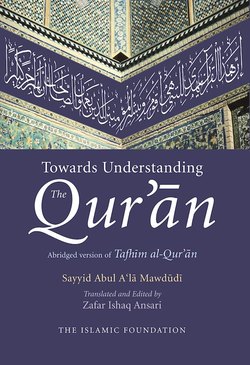Читать книгу Towards Understanding the Qur'an - Sayyid Abul A'la Mawdudi - Страница 47
На сайте Литреса книга снята с продажи.
ОглавлениеTowards Understanding the Qur’an
[ X ]
The Qur’an is strong in its condemnation of those who indulge in schismatic squabbling after the Book of Allah has been revealed, so causing a weakening of faith;8 yet there has been considerable disagreement over the correct interpretations of the Qur’anic injunctions, not only among later scholars, but even among the founders of the legal schools and the Successors.9 Indeed, disagreement can be traced back even to the times of the Companions10 of the Prophet. One can hardly point to a single Qur ’anic verse of legal import which has received complete unanimity as regards its interpretation. One is bound to ask whether the Qur’anic condemnation applies to all who have disagreed in this way. If it does not, then what kind of schism and disagreement does the Qur’an denounce?
This is quite a problem and its ramifications cannot be considered at length here. The reader may rest assured that the Qur’an is not opposed to differences of opinion within the framework of a general agreement on the fundamentals of Islam and the broad unity of the Islamic community. In addition it is not opposed to disagreement arising from an earnest endeavour to arrive at the right conclusions on a particular subject; the only disagreements condemned by the Qur’an are those arising out of egotism and perversity, leading to mutual strife and hostility.
The two sorts of disagreement are different in character and give rise to different results. The first kind is a stimulus to improvement and the very soul of a healthy society. Differences of this kind are found in every society whose members are endowed with intelligence and reason. Their existence is a sign of life, while their absence only serves to demonstrate that a society is not made up of intelligent men and women but of blocks of wood.
8 See Qur’an 2: 7; 6: 159; 42: 14; 3: 105; 8: 46. – Ed.
9 The word “Successors” has been used as the equivalent of Tabi[un, i.e. those who benefited from the Companions of the Prophet. – Ed.
10 The word “Companions” has been used as the equivalent of Sahabah, i.e. those who, in a state of belief, enjoyed the companionship of the Prophet (peace be on him). – Ed.
xlvi
